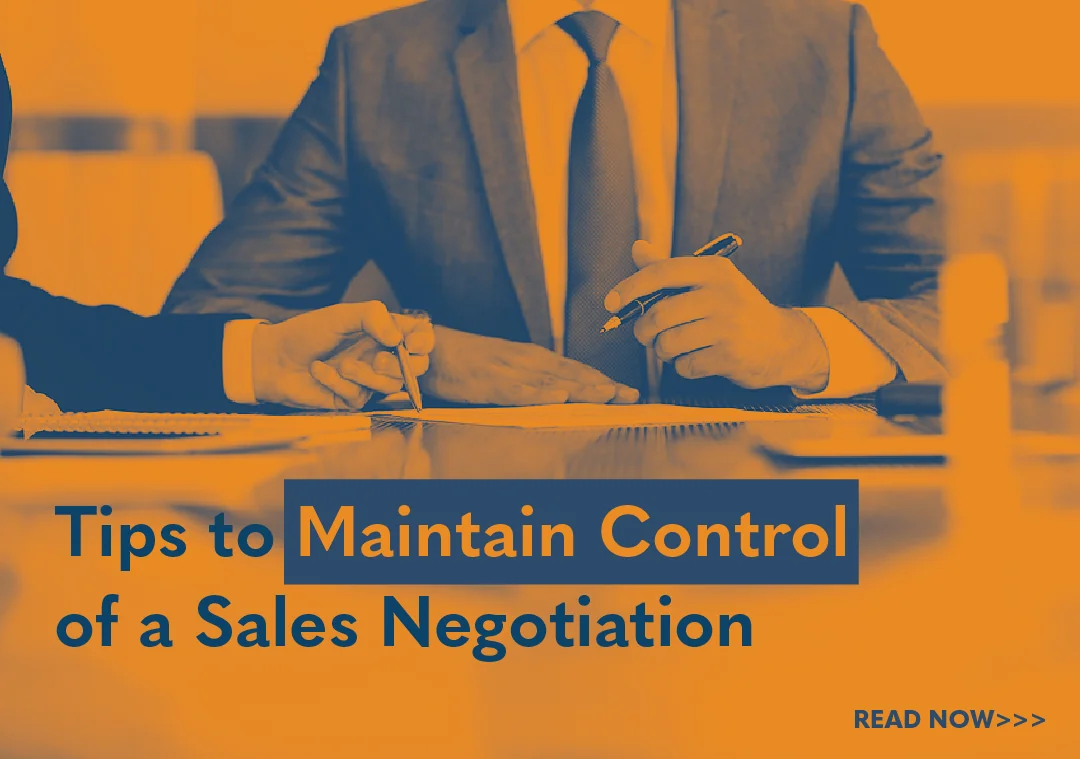How to Remove Doubt From the Sales Equation

Sales is a challenging profession, in part due to all of the obstacles we face in the normal course of trying to win business: We’re at the mercy of multiple decision makers, we have to position ourselves as better than the provider our customer is already using, and we have to be sure our products and services stand out among the numerous options available to buyers.
The following are a few ways to proactively eliminate doubt early on in the sales process.
Keep It Real
Don’t lose sight of why you went into this profession—because you like people and want to help them find solutions. When it comes to deep diving into who your customer is and what their challenges are, there’s no substitute for authenticity. That desire to know about and help your customer needs to be present in your voice during sales calls; if not, the prospect will see right through you, and you’ll be left holding the bag of a one-sided conversation.
Ask good discovery questions and use your active listening skills to create a dialogue and build rapport with the customer. If you’re doing these things effectively, the dialogue will gain momentum and you’ll get follow-up questions from the customer—a sign that they’re interested in your company and your offerings. Often this will be specific customer inquiries around product features and/or benefits of your goods and services. Customers could also ask about cost and how the implementation phase will look.
Keep a Good Ear Out
But often the most crucial questions are the ones that customers don’t ask directly, but indirectly. These questions can be folded into or tacked onto broader questions. Be aware of these “side” questions— and address them through your dialogue.
The Fundamentals
Let’s walk through the big questions on every customer’s mind, and how you can strategically answer them—proactively erasing doubt in the customer and positioning yourself as someone they trust and want to do business with.
Fundamental Customer Question No. 1: Can I trust you?
Selling is a human-to-human business, and “Can I trust you?” is one of the most basic of human questions. In sales, you need to be able to answer it with a resounding and believable “absolutely.” Customers particularly want to know if they’re dealing with a new vendor or a sizable purchase. Generally, this question will be implied, not overtly stated. If the answer the customer “hears” is “No,” it will be game over for you and that prospect.
One of your top priorities as a sales professional is establishing trust between you and the customer. It will take time to rise to the level of “trusted advisor” in the eyes of the customer, but that’s ultimately where you want to be. A trusted advisor is that person with the best interest of the customer in mind. Again, this won’t happen right away. So how do you reach the level of trusted advisor? Come at it from several directions, including the following:
- Share industry-relevant business intelligence with the customer
- Use social proof—case studies, testimonials, online reviews, and contact info for existing customers who can speak to your worth and recommend you
- Be willing to tactfully challenge your customer’s thinking and offer options and alternatives
- Try to gain complete understanding of your customer’s needs and let them know it is at the top of your priorities
Fundamental Customer Question No. 2: Why Should I Buy From You?
Don’t deceive yourself into believing that buying from you is the only option a customer has. Customers are savvy and may have done a lot of research before reaching out to you. You can safely bet that your customers have reached out to the competition as well. Think about it, if you were the buyer, you would do the same thing. Let’s call it vetting the options. It’s a reality. And it’s a good thing to bring up with the customer, but only in the right way. Don’t rail on the competition, of course; instead, what you’ll want to do is inquire whether the customer has looked at alternate solutions. This kind of open dialogue about the competition is an opportunity for you to underscore how your products and services will better suit the customer’s needs. Put particular emphasis on those needs that top the customer’s priority list.
Fundamental Customer Question No. 3: How much am I REALLY going to end up spending?
Money makes the world go around; it can also bring a sale to a screeching halt. In the realm of B2B and B2C selling, it’s common for buyers to be wary of things like hidden fees and expenses that come to light post-purchase, especially with products involving a lot of moving parts that may require regular maintenance, or training, or a complex implementation phase. By addressing any and all possible hidden or deferred expenses with the customer upfront, and by walking them through different purchase scenarios when it comes to products that require on-going costs, you’ll be creating a level of transparency that the customer will appreciate. It will also place you in a good light as an honest, upfront, and thorough sales rep.
Remember: Selling is two parts goods and services and one part experience—the customer experience. They’re either going to walk away thinking, “I was just sold a bill of goods,” or “I just purchased a great solution from someone I respect and trust.” Instead of a fourth fundamental question in the buyer’s mind, you’ll hopefully have helped to put a statement there: “I would buy from them again!”

- Account Planning (11)
- Awards (50)
- Client Testimonial (37)
- Personal Branding (19)
- Podcast (11)
- Research (68)
- Sales Career Development (85)
- Sales Coaching (154)
- Sales Consulting (133)
- Sales Culture (164)
- Sales Enablement (340)
- Sales Leadership (108)
- Sales Management (242)
- Sales Negotiation (16)
- Sales Prospecting (124)
- Sales Role-Playing (18)
- Sales Training (229)
- Selling Strategies (255)
- Soft Skills (67)
- Talent Management (92)
- Trusted Advisor (27)
- Virtual Selling (41)
- Webinar (10)





























